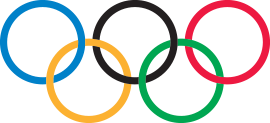The World Anti-Doping Agency (WADA) has released its amended 2014 List of Prohibited Substances and Methods, with xenon and argon gas added to it.
Xenon and argon have been added to Section S2.1 of the list that covers peptide hormones, growth factors and related substances.
Section S2.1 now reads: “The following substances, and other substances with similar chemical structure or similar biological effect(s), are prohibited: 1. Erythropoiesis-Stimulating Agents [e.g. erythropoietin (EPO), darbepoetin (dEPO), hypoxia-inducible factor (HIF) stabilizers and activators (e.g. xenon, argon), methoxy polyethylene glycol-epoetin beta (CERA), peginesatide (Hematide)].”
Xenon and argon had been added to the list of banned substances in May at a meeting of the WADA Executive Committee and Foundation Board in Montreal and will come into effect on Monday (September 1) following the required three-month notice period.
The addition of the substances to the list came as a result of a WADA investigation launched after claims Russian athletes had used the substances at Olympic Games from Athens 2004 to the Sochi 2014 Winter edition.
The investigation found inhaling the gas encourages the production in the body of the hormone erythropoietin (EPO), which enhances formation of red blood cells to improve performance – particularly useful in endurance disciplines.
The WADA enquiry followed an earlier investigation by German broadcaster WDR in February claiming members of the Russian team at Sochi 2014 inhaled the “performance enhancing” gas.
The head of Russia’s Federal Biomedical Agency, Vladimir Uiba, had indicated Russian athletes were using xenon gas but claimed it was not illegal.
That led former WADA President Dick Pound, who is still part of the organisation’s Foundation Board and a member of the International Olympic Committee, to condemn the use of xenon saying the he was “in no doubt that it is doping”.
But in March WADA director general David Howman told insidethegames the use of xenon had been known for “years and years, before Athens 2004”, but had not been previously looked at because “it wasn’t an issue that needed to be addressed”.
Russian medical-xenon producer, Atom Medical Centre, which received national honours for its efforts preparing athletes for the Athens 2004 and Turin 2006 Olympics, disputes the effect of the gas on the release of EPO in humans and the claim that inhaling it constitutes doping.
No Russian athletes failed a drugs test during Sochi 2014, but biathlete Irina Starykh was dropped from the Russian team days before the start of the Olympics after she admitted using a banned substance.
Russia topped the medals table at the Sochi 2014 Winter Olympics winning 13 gold, 11 silver and nine bronze medals, which included a clean-sweep in the men’s 50 kilometres mass start cross-country event.
To view the amended 2014 List of Prohibited Substances and Methods, click here.
Contact the writer of this story at gary.anderson@insidethegames.biz
Source: http://www.insidethegames.biz/news/1022208-xenon-and-argon-confirmed-on-amended-wada-prohibited-list


